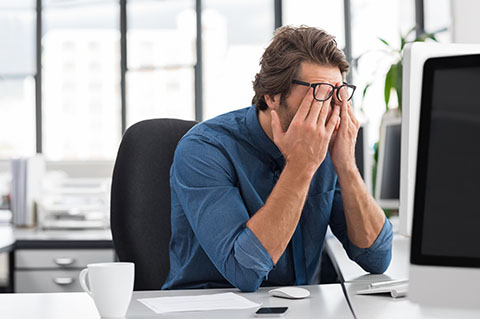My Plate is Too Full – How to Manage Stress and Anxiety
Alice D. Hoag, Ed.D.

Right about now, Covid fatigue is setting in. According to Dr. Kotwicki of Skyland Trail in Atlanta, statistics from his psychiatric facility are showing an increase in anxiety-related admissions (2020). Many people are being admitted for physical manifestations of anxiety, such as panic attacks, heart complaints, stomach and gastrointestinal distress, back problems, and stress-related headaches. Schedules and routines which had been manageable prior to Covid have been profoundly disrupted, and with the “cure” or preventative vaccine still many months away, the stress is taking its toll on individuals across all segments of society.
Prior to Covid, I used to hear comments such as: “She burns the candle at both ends;” or “He’s stressed for success;” and, “There’s so much to do with so little time to do it in,” or even, “Sleep?! Who’s got time for sleep?!” These sentiments were often spoken with a hint of pride that the individual had been able to manage inordinate amounts of pressure seemingly flawlessly. Or there was a sense of self-satisfaction in being able to juggle so many different things or accomplish so much, to have checked many items off a long to-do list. Multitasking became almost a badge of honor in some circles. Yet research bears out that stress triggers the release of a host of hormones, including adrenaline and cortisol, known as the “stress hormone.”
Our bodies do not differentiate between physical danger and emotional overload; regardless of the source, when we sense some type of threat, our bodies go into high gear to help us run away from the danger, face and fight it, or numb us to the inevitable impact of it. According to the Mayo Clinic (2019), adrenaline “increases your heart rate, elevates your blood pressure and boosts energy supply. Cortisol, the primary stress hormone, increases sugars (glucose) in the bloodstream, enhances your brain’s use of glucose and increases the availability of substances that repair tissues. Cortisol also curbs functions that would be nonessential or detrimental in a fight-or-flight situation. It alters immune system responses and suppresses the digestive system, the reproductive system and growth processes.” So, adrenaline and cortisol help us run away from the proverbial boogie-man to survive yet another day.
A cortisol surge is a survival mechanism helping us in an acute crisis. When the danger is something chronic or something most of us have no ability to fight or run away from, such as the Covid virus, the stress hormones continue to build in our bodies day after day. This puts us at an increased risk for many health problems such as anxiety, depression, digestive problems, headaches, heart disease, vascular disease, sleep problems, weight gain, fatigue, memory impairment and concentration difficulties.
What is a person to do? There are both physical and psychological things anyone can do to reduce their levels of stress, whether acute or chronic. One of the best physical stress-busters at everyone’s disposal is exercise. Exercise helps get rid of the stress hormones from our bloodstream, helps produce proteins in the brain which heal the brain and help it grow, helps reduce muscle tension, and helps improve the quality of sleep.
In addition to exercise, increasing margin in our lives can be an effective way to manage stress (Swenson, 2004). Margin is like the white space on this page. If there were no white space between the words or paragraphs or around the edges, my words would crowd into each other, creating more of a sense of chaos than meaning. Our lives are like the page, and our activities of both body and mind are like the words. Unless there is space, our lives become chaotic and it becomes difficult to find the meaning in our existence. Creating margin can begin with savoring moments of quiet, enjoying a sense of awe, or creating extended periods of time in your day for relaxation or laughter.
Some psychological strategies include practicing some form of mindfulness where we still our bodies and minds from the shortcomings of yesterday or the worries of tomorrow and focus instead on the present moment of our lives; taking time to sit with a friend (at a safe social distance, of course) to talk, laugh, and share the highs and lows of our day with; or talking with a mental health professional to learn how to reframe negative thoughts about a situation to neutral or positive thoughts, how to set healthy boundaries or margins, or to receive guidance on getting back a healthy psychological perspective on life.
If you are experiencing any anxiety symptoms or health problems related to high stress, talking with a counselor can provide relief to your distress. At Summit, many of our counselors are trained in stress-management and stress-reduction strategies, relaxation techniques, mindfulness practices, and cognitive behavioral techniques to change negative thinking patterns. Dr. Hoag works extensively with adults struggling under the weight of anxiety, depression, trauma, and overwhelming stress. To schedule an appointment with her or any of the counselors at Summit, call 678-893-5300.
References
Kotwicki, R. (Psychiatrist). (2020, September 28). Political Rewind: Emotional Strain and Quarantine [Audio podcast]. Retrieved from https://npr.org/podcasts/487480863/political-rewind.
Mayo Clinic. (2019, March). Chronic stress puts your health at risk [Web article]. Retrieved from https://mayoclinic.org/healthy-lifestyle/stress-management/in-depth/stress/art-20046037.
Swenson, R. (2004). Margin: Restoring Emotional, Physical, Financial, and Time Reserves to Overloaded Lives. Colorado Springs, CO: NavPress.

